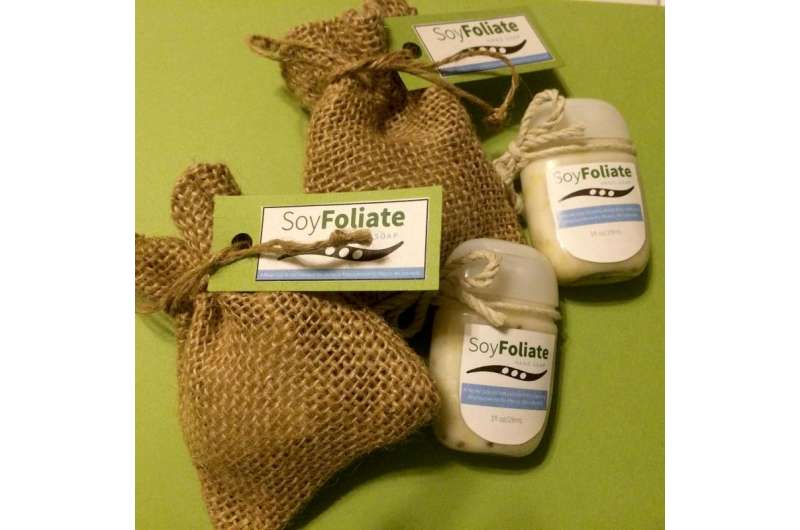Students develop environmentally friendly, soy-based alternative to plastic exfoliating beads in soap

Four Purdue students have created an alternative to the plastic microbeads found in nearly all exfoliating soaps by using soy-based components. Soy-based beads are safe for the environment, unlike the plastic beads that can damage the environment and harm animals.
Samuel Lewis, Steve Ferris and Alison Switzer, all third-year students in Purdue's Doctor of Pharmacy program, and Ryan Pendergast, a junior in Purdue's School of Mechanical Engineering, have developed SoyFoliate, an exfoliating soap that uses soy beads instead of plastic microbeads.
The team members came up with the idea after one of them washed their hands with exfoliating soap and started considering the possibility of replacing the plastic microbeads with soy.
"We know plastic microbeads aren't good for the environment, and after doing some research we found out how harmful they really are," Lewis said. "They can't be filtered out, so they get into the ocean, and then the fish can eat them and die. However, if they don't die, then humans eat the fish and can potentially experience harmful effects. It's an endless cycle."
President Barack Obama signed the Microbead-Free Waters Act, banning microbeads, into law in December 2015. The ban, however, does not go into effect until the middle of 2017.
Lewis said he and his team have developed a way to make their own soy beads.
"We mill down the soy and we set the size of the beads to one that we think is the best," Lewis said. "The soy is very rigid and once you break it down it has properties that help safely exfoliate your skin as you run it through your hands."
The soy beads provide a naturally degradable substitute for the plastic microbeads.
"Right now the plastic beads don't absorb water, but soy can over time. To mitigate the problem we mixed our beads with small amounts of oil to prevent water from saturating the beads and decreasing their rigid properties. We are still doing research on increasing shelf-stability and ensuring our product is safe for the environment," Lewis said.
Provided by Purdue University


















